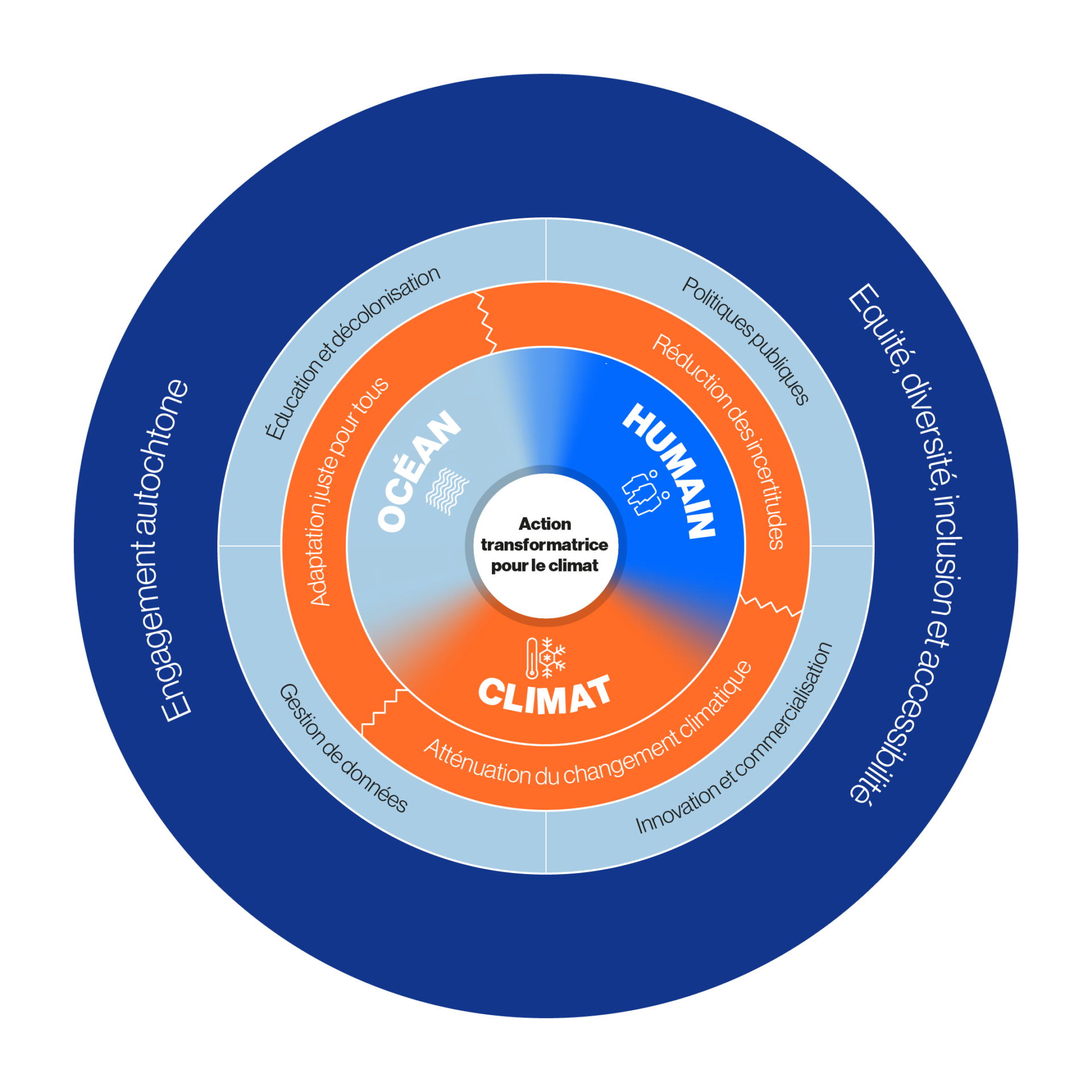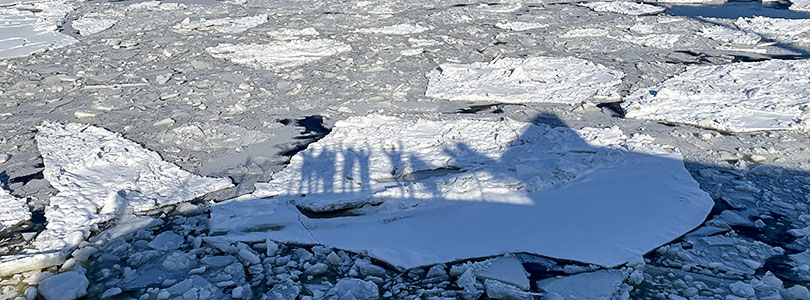Transforming climate action: an ocean-focused approach (TCA program)
A historic grant of $154,414,655 was awarded to four partner Canadian universities (Dalhousie University in Halifax, Université du Québec à Rimouski, Memorial University of Newfoundland and Université Laval) by the Canada First Research Excellence Fund. From 2023 to 2030, the consortium will carry out an ambitious research program on the role of the ocean in climate change and on climate change mitigation measures in the marine environment.

Various sources of evidence show that carbon-intensive human activity has destabilized crucial elements of the Earth system that determine climate.
To date, the ocean has absorbed 40% of emissions linked to the combustion of fossil fuels and 90% of the heat coming from anthropogenic global warming through a set of processes forming the “ocean carbon pump”. However, the ocean is transforming at an uncertain rate and its capacity to protect against the effects of human activity could be lacking, which would greatly exacerbate climate change and compromise efforts to achieve carbon neutrality.
Pour s’adapter au climat qui change, l’espèce humaine doit très vite acquérir une meilleure connaissance des To adapt to a changing climate, the human species must very quickly acquire a better understanding of the mechanisms by which the oceans react to this phenomenon. The Transforming Climate Action (TCA) program aims to develop the transformative solutions required and demonstrate their effectiveness. The initiative offers three interrelated research themes focused on the North Atlantic, which absorbs 30% of global ocean carbon. It will produce transdisciplinary studies relevant to society, in collaboration with Indigenous and non-Indigenous groups, governments and international partners, to guide actions to combat climate change in Canada.
Through more diligent and thoughtful observation of the main ocean processes at play in the North Atlantic, the initiative will temper certain major uncertainties relating to the link between the ocean and climate through, among other things, improved observation air-sea carbon fluxes, deep convection and carbon uptake by the ocean floor. Recent technological advances will make it possible to synthesize ocean data at a higher level than was previously possible, a synthesis that will directly guide climate policies.
The TCA program is structured around three main themes :
Ocean Study the carbon cycle in the ocean and other relevant processes to reduce uncertainties in the role of the ocean in climate change.
Climate Find and explore natural and technical solutions capable of reducing the carbon footprint of ocean industries and boosting clean observation and monitoring technologies. The initiative will develop novel approaches to combating climate change through collaboratively developed mitigation measures, such as accelerating the natural and artificial uptake of carbon by the ocean.
Humans The initiative will produce new knowledge and practical methods that will support justice and equity in adaptation to the interactions between oceans, climate and human populations. Collaboration with indigenous and coastal communities as well as new decision-making methods and approaches to governance and policy development will promote more equitable and sustainable adaptation measures for the transition to a carbon-neutral economy.
The initiative will result in transformative knowledge mobilization, which will be based on relevant, compelling and applicable communications. It will also explore various training methods capable of giving different actors the autonomy required to move from knowledge to action.

A path of propulsion: the transformation HUBs
The TCA program will be supported by four transformation accelerators with specific themes: research data management, public policies, innovation and commercialization strategies and the UQAR Agora which will help propel the transfer of knowledge through education , the arts and decolonization.
To learn more about transformation HUBs
News
To learn more about us
If you would like more information about the TCA program, you can contact the following people at UQAR: